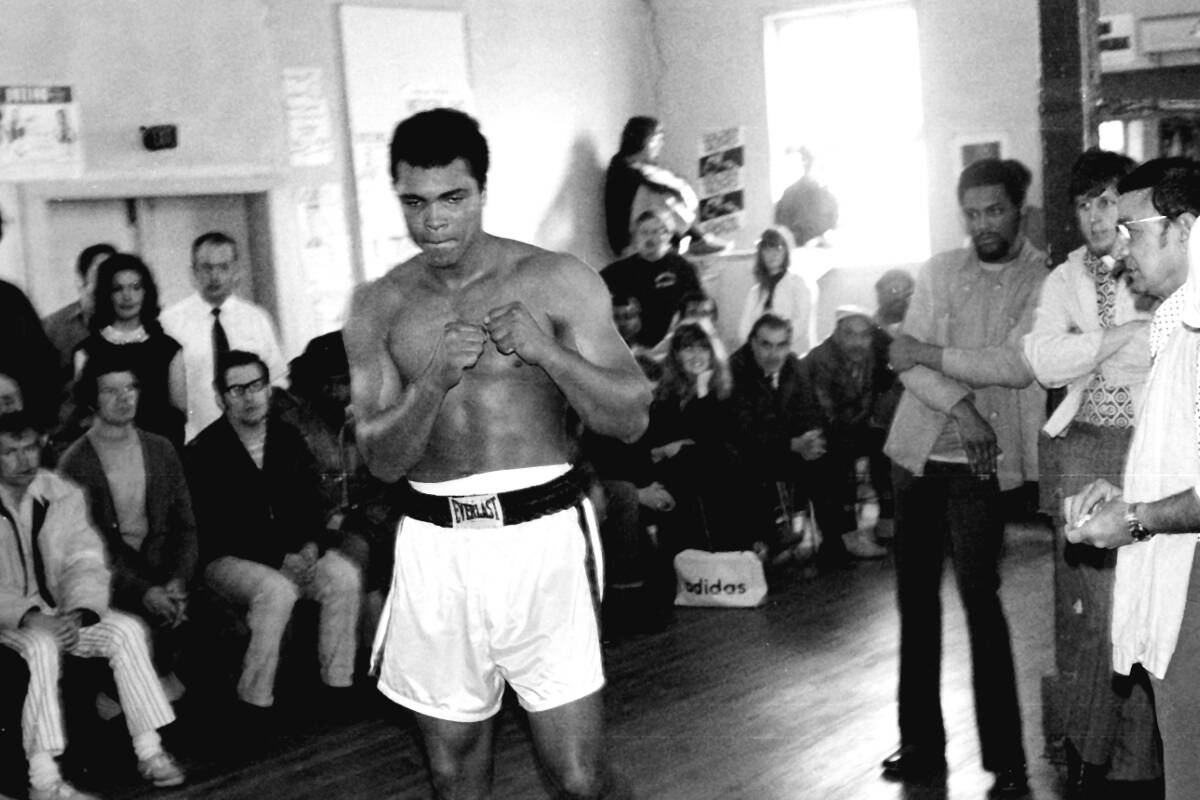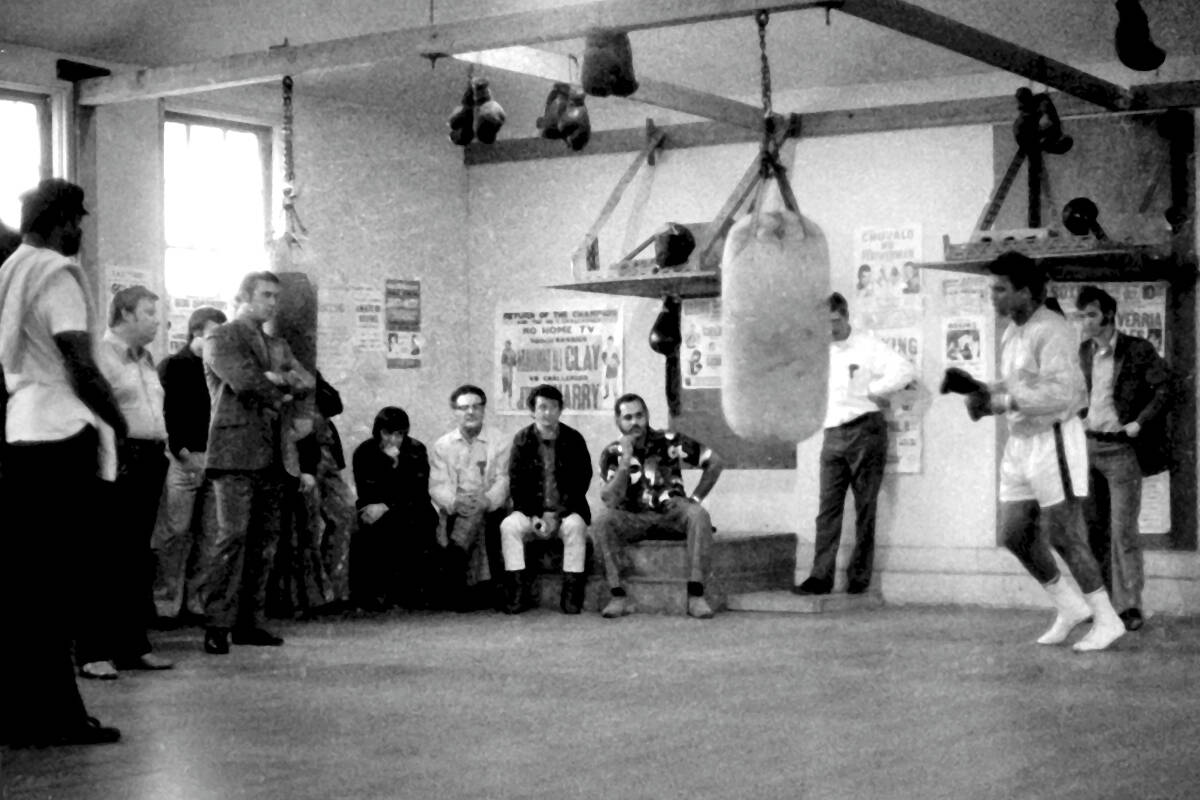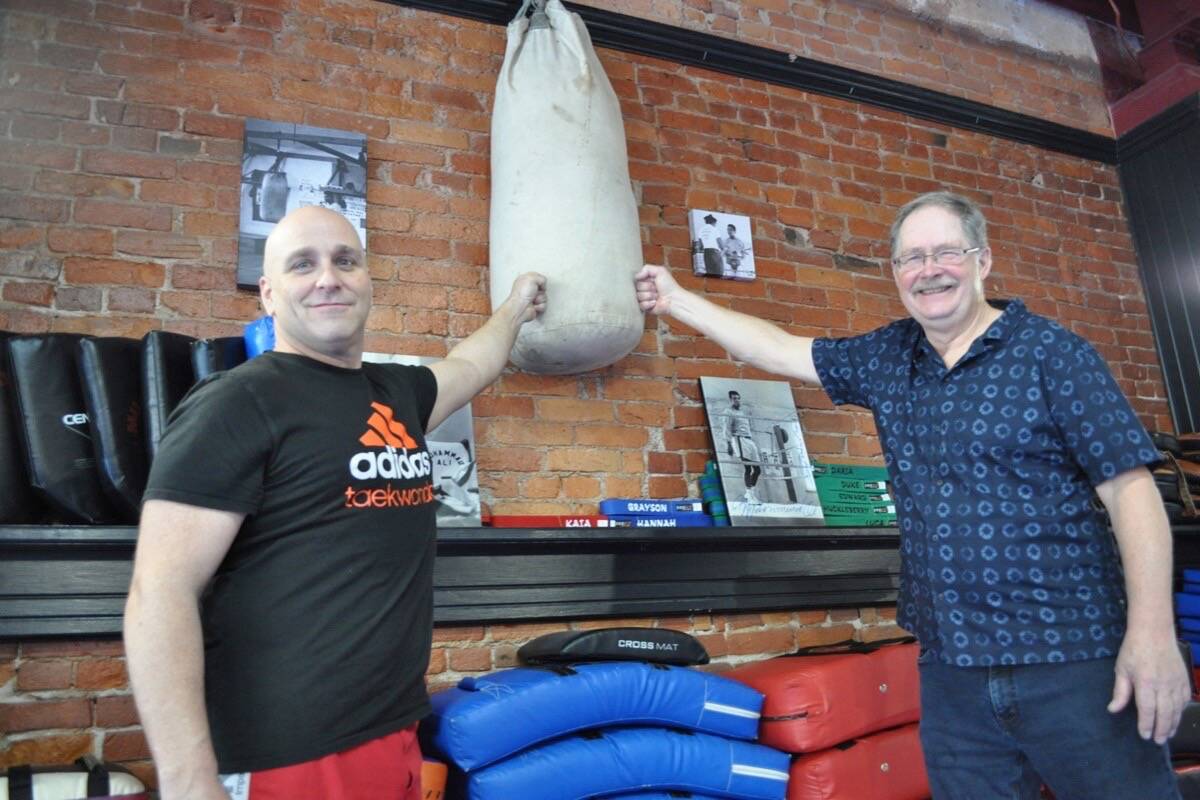A row of shiny, clean punching bags lines the wall at Nelson’s Yom Chi Martial Arts. But the one that has been hung in a place of honour is a dingy sack with a suspect-looking stain on one side.
How it arrived in Nelson began over half a century ago when the greatest boxer of all time trained on the bag in a North Vancouver gym. Muhammad Ali was at the North West Eagles Boxing Club where he was warming up in April 1972 prior to his fight against Toronto’s George Chuvalo.
Few knew Ali and Chuvalo were training at the gym, which was owned by then-Canadian boxing team coach Elio Ius. He asked his 18-year-old son John to photograph the sessions, which were only attended by people who heard word-of-mouth what was happening.
For five days Ius took pictures of Ali and his entourage in front of a small gathering of onlookers who he says were enraptured.
“All these people were there, and they were just so inspired by this guy,” says John Ius. “Everyone was just in awe to watch him in person.”
Ius witnessed Ali at an inflection point in the boxer’s career. He had just spent four years banned from the ring for refusing to serve in the Vietnam War, during which time he had his world championship taken away and missed what arguably should have been his prime years.
The fight with Chuvalo was the beginning of his revival. Ali had already once defeated Chuvalo in 1966 in an infamous slugfest and in the rematch vowed to become the first to knock the Canadian down.
But behind the scenes, Ius saw how chummy the pair were. At one point during the training, Ius was in his father’s office while Chuvalo was changing when Ali stormed in and slammed the door behind him.
“They started banging on the table and banging the doors and just clowning how they’re going to kill each other — with the smiles on their faces.”
On May 1, 1972, Ali and Chuvalo went 12 rounds at Pacific Coliseum. Ali again won, but failed to put Chuvalo on the mat. (Chuvalo, whose next fight happened to be later that year in Nelson, would go undefeated in seven more bouts before retiring as the Canadian heavyweight champion in 1978.)
The punching bag, meanwhile, continued to be used at the gym until it was closed down about 10 years later. Elio Ius held onto the bag and before his passing gave it to John, who in turn put it into storage where it mostly stayed forgotten.
But then, about five years ago, John Ius relocated to Nelson to be close to his granddaughters who had taken up taekwondo.
The Nelson Boxing Club is across the street from Yom Chi, and Ius considered donating the bag there. But he was impressed by Yom Chi owner Bain Jordahl, who instructs his granddaughters.
”I said, ‘Bain, have the kids hit the bag then they can say hey I hit the bag that Muhammad Ali hit.’”
Earlier this year Ius and Jordahl hung the bag up in the dojang along with two pictures Ius took of Ali, one of which was signed.
Jordahl said he didn’t believe Ius was being serious when he offered the punching bag.
“It’s hard to believe we actually have it here. To have the greatest of all time’s bag that he worked with, it’s pretty amazing.”
Ali is arguably the most famous athlete of the 20th century, yet Jordahl admitted many of his young students don’t know anything about him and that he’s taken time to change that. One of his students, however, is coincidentally named Cassius after Ali’s birth name Cassius Clay.
There is more modern equipment at Yom Chi for martial artists to work with, but Jordahl has already let his students each throw a punch at the bag Ali and Chuvalo once worked on.
Of course, he couldn’t help himself from punching it once either.
“Oh yeah, I had to. I’ve even kicked it a few times.”
READ MORE:
• PHOTOS: Yom Chi Martial Arts holds Tournament of Champions
• BCHL splits from Hockey Canada, forms independent league
@tyler_harper | tyler.harper@nelsonstar.com
Like us on Facebook and follow us on Twitter.



